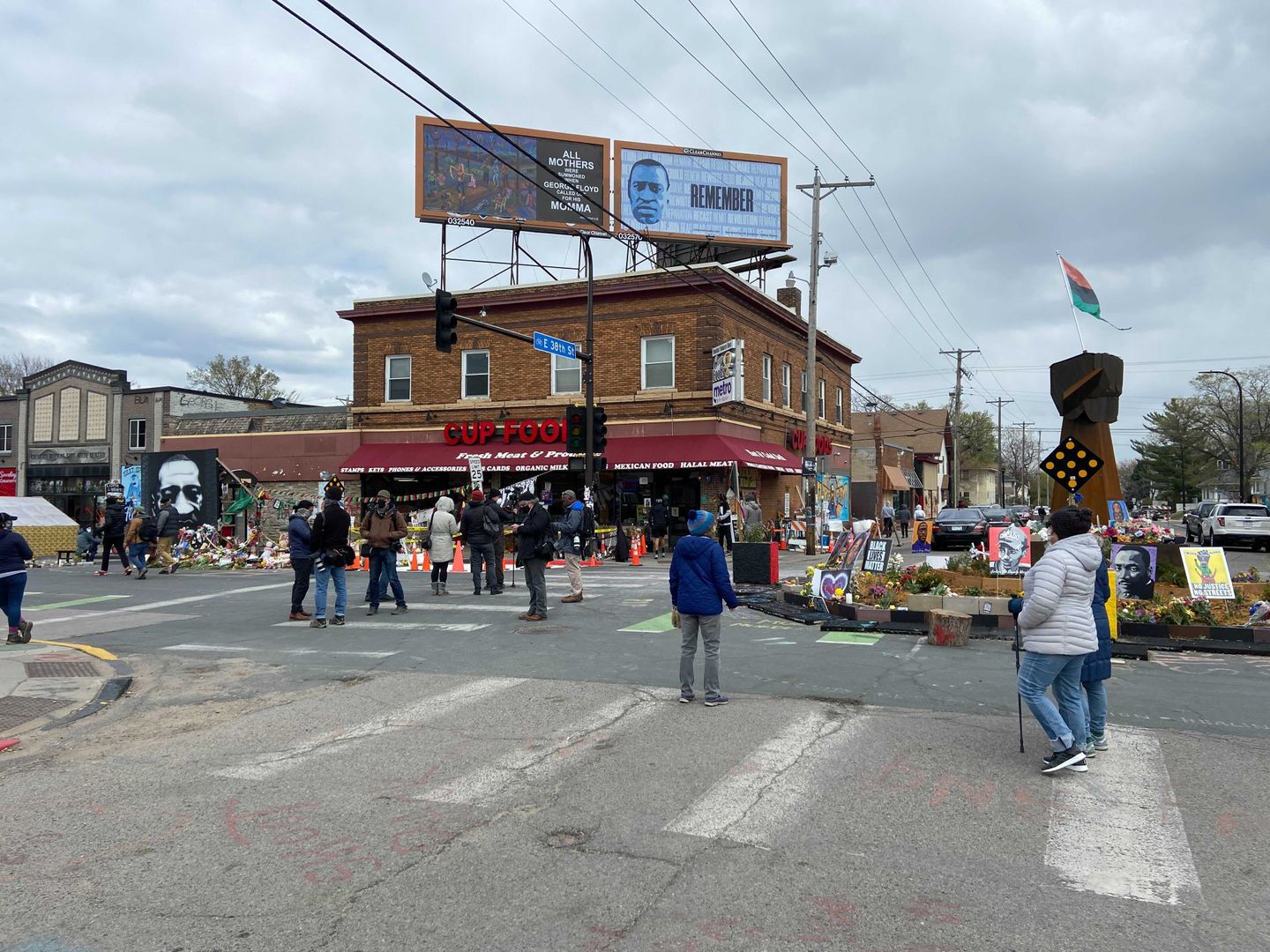
The Floyd Case: Former Police Officer Found Guilty on All Counts, Led out of the Court in Handcuffs
And thus, Derek Chauvin is convicted of second-degree murder, third-degree murder and manslaughter.
The sentencing will likely take some time, perhaps many weeks. After the trial ended, Chauvin was handcuffed and escorted from the courtroom.
When the judge read the jury’s verdict, wild jubilation broke out outside the court house. “All three counts, all three counts!” shouted the large crowd, with reference to Chauvin having been found guilty on all three counts.*
In the streets of Minneapolis, there was a festive atmosphere Tuesday evening. Cars honked their horns. People were waving large flags.
For some, the feelings were overwhelming.
“Finally we can breathe. Finally it feels like someone is listening,” Bri Graham, 31, told Aftenposten as she wiped away tears.*
She believes it was important for Chauvin’s verdict to be severe. “Now I don’t have to hear from people in the comment sections or a crazy uncle that this was a case of doubt. It was a clear conviction. Accept it!” she said.*
Her friend Sydney Bobbs, 31, believes that there is not yet enough reason to celebrate.
“I will sleep well tonight, but this fight is not over,” she said.*
The Family Received a Telephone Call from the President
President Joe Biden called George Floyd’s family after the verdict.
“Nothing is going to make it all better, but at least now there is some justice … We’re all so relieved,” Biden told the family, according to the White House.
In a video of the telephone call, Floyd’s family members can be seen weeping as they listened to the president’s words.
3 Weeks in Court
The trial, which was one of the most followed in America in recent decades, lasted three weeks.
In his closing argument, the prosecutor in the case said that even a child would grasp that what happened with Floyd was wrong.
A central witness was the city’s police chief, Medaria Arradondo, who harshly criticized Chauvin’s conduct. It is uncommon for people from the same police force to testify against each other in this way.
The defense argued, on the other hand, that Chauvin operated by the book, and that Floyd died from heart disease and drug use.
That defense failed to convince the jury. The 12 members of the panel were sequestered for more than a day while they reached a verdict, which had to be unanimous.
Incensed Population
The case against Chauvin, who knelt on Floyd’s neck, shoulders and back for nine minutes and 29 seconds last May 25, was featured in images in the news around the United States and angered many parts of the country.
Before the verdict, many expressed fear of what would happen if the police officer were acquitted.
The National Guard had moved into place in the streets of many American cities due to fear of riots. In Minneapolis, the schools were closed for the days following the trial.
Previously, documented instances of police violence and acquittals in court cases associated with them have led to violent riots in American cities.
Biden also spoke about the case on Tuesday, after the jury had retired for the day. He indicated then that he hoped Chauvin would be convicted of murder, and said that he was praying for a correct verdict.
“It’s overwhelming in my view,” Biden said of the evidence in the case.
The following discusses the charges against Chauvin.
Jurist and commentator Sofie Høgestøl finds it difficult to compare American criminal statutes directly to Norwegian criminal law.
Aftenposten uses the Norwegian terms “intentional” and “unmeditated killing” for the most serious count.
“It is extremely difficult to compare legal provisions from one country’s system to another, but I think that the first two counts correspond to what in Norway is called gross bodily injury resulting in death. The last count corresponds to negligent killing,” Høgestøl told Aftenposten.
Regarding “second-degree murder” with a maximum sentence of 40 years: This charged Chauvin with causing Floyd’s death “without intent” while he committed or attempted to commit a crime is viewed as considerable bodily harm, also gross violence, in Norwegian courts.
Regarding “third-degree murder” with a maximum sentence of 25 years: This charged Chauvin with causing Floyd’s death by committing an act that is dangerous to the other person and without showing consideration for the other person’s life.
Regarding “second-degree manslaughter” with a maximum sentence of 10 years: This charged Chauvin with negligently causing Floyd’s death.
Amnesty: Hope that the Verdict Can Be the Start of Change in the US
Tuesday’s verdict should be the beginning of reform in the U.S., asserted John Peder Egenæs of Amnesty International.
“This signifies justice for George Floyd, but it can only be the beginning. Now American authorities must take action to ensure that no one, regardless of skin color, need fear harassment in encounters with the police,” says Egenæs.
*Editor’s note: Although accurately translated, these comments could not be independently verified.
